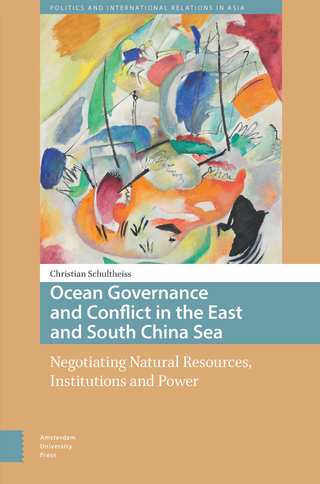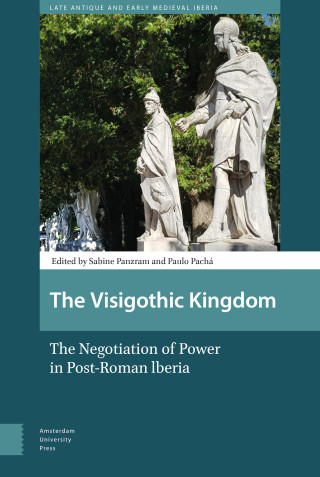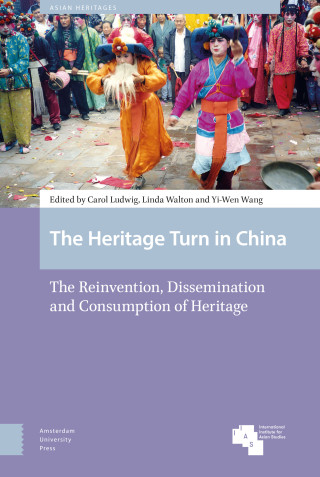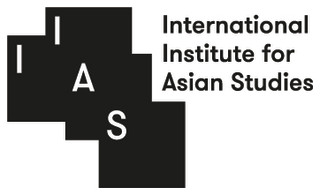
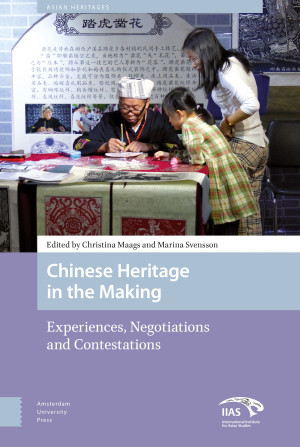
- Titel
- Chinese Heritage in the Making
- Subtitel
- Experiences, Negotiations and Contestations
- Redacteuren
- Christina Maags
- Marina Svensson
- Prijs
- € 134,00 excl. BTW
- ISBN
- 9789462983694
- Uitvoering
- Hardback
- Aantal pagina's
- 288
- Taal
- Engels
- Publicatiedatum
- 07 - 03 - 2018
- Afmetingen
- 15.6 x 23.4 cm
- Open access
- Download op Open Access Platform
- Serie
- Asian Heritages
- Partner

- Categorie
- Cultural Studies
- Discipline
- Aziëstudies
- Voorbeeld
- Download introductie
- Ook beschikbaar als
- eBook PDF - € 0,00
Acknowledgments
Mapping the Chinese Heritage Regime: Ruptures, Governmentality, and Agency
Marina Svensson and Christina Maags
SECTION I: Re-imagining the past: Contested memories and contemporary issues
Telling stories in a borderland: the evolving life of Ma Bufang’s Official Residence
Susette Cooke
From a Symbol of Imperialistic Penetration to a Site of Cultural Heritage: The ‘Italian-Style Exotic District’ in Tianjin
Hong Zhang
Historic Urban Landscape in Beijing: The Gulou Project and Its Contested Memories
Florence Graezer Bideau and Haiming Yan
SECTION II: Celebrating and experiencing the cultural heritage: Top-down and bottom-up processes and negotiations
Creating a Race to the Top: Hierarchies and Competition within the Chinese ICH Transmitters System
Christina Maags
Heritagizing the Chaozhou Hungry Ghosts Festival in Hong Kong
Selina Chan
Recognition and Misrecognition: The Politics of Intangible Cultural Heritage in Southwest China
Tami Blumenfield
Holy Heritage: Identity and Authenticity in a Tibetan Village
Sonja Laukkanen
SECTION III: Public debates in heritage work: Possibilities and limitations for plural voices and new forms of engagements
Heritage Visions of Mayor Geng Yanbo: Re-creating the City of Datong
Jinze Cui
Revitalization of Zhizhu Temple: Policies, Actors, and Debates
Lui Tam
Heritage 2.0: Maintaining Affective Engagements with the Local Heritage in Taishun
Marina Svensson
Christina Maags, Marina Svensson (red.)
Chinese Heritage in the Making
Experiences, Negotiations and Contestations
De onderstaande tekst is niet beschikbaar in het Nederlands en wordt in het Engels weergegeven.
The Chinese state uses cultural heritage as a source of power by linking it to political and economic goals, but heritage discourse has at the same time encouraged new actors to appropriate the discourse to protect their own traditions. This book focuses on that contested nature of heritage, especially through the lens of individuals, local communities, religious groups, and heritage experts. It examines the effect of the internet on heritage-isation, as well as how that process affects different groups of people.
Redacteuren
Christina Maags
Christina Maags is lecturer in Chinese Politics, School of Oriental and African Studies (SOAS), University of London.
Marina Svensson
Marina Svensson is Professor of Modern China Studies at Lund University and does research related to human rights, cultural heritage, journalism, digital society and the Internet in China.

